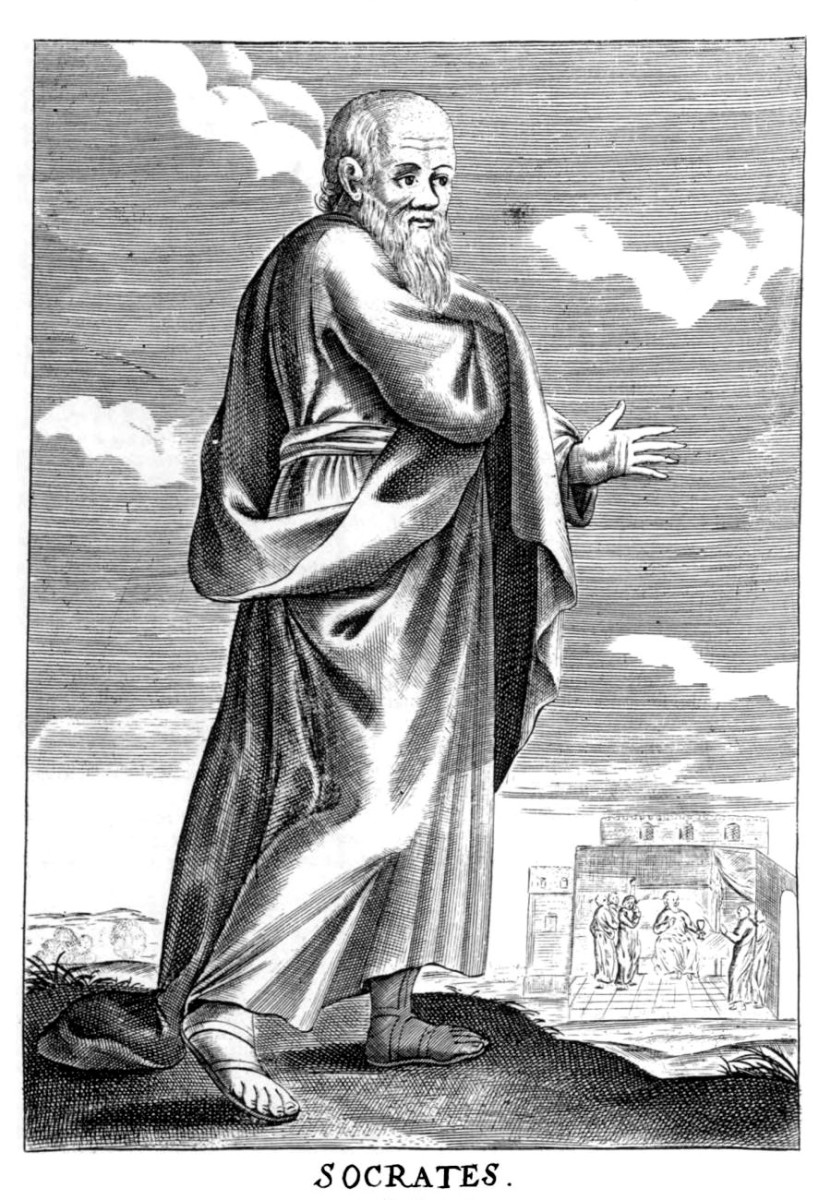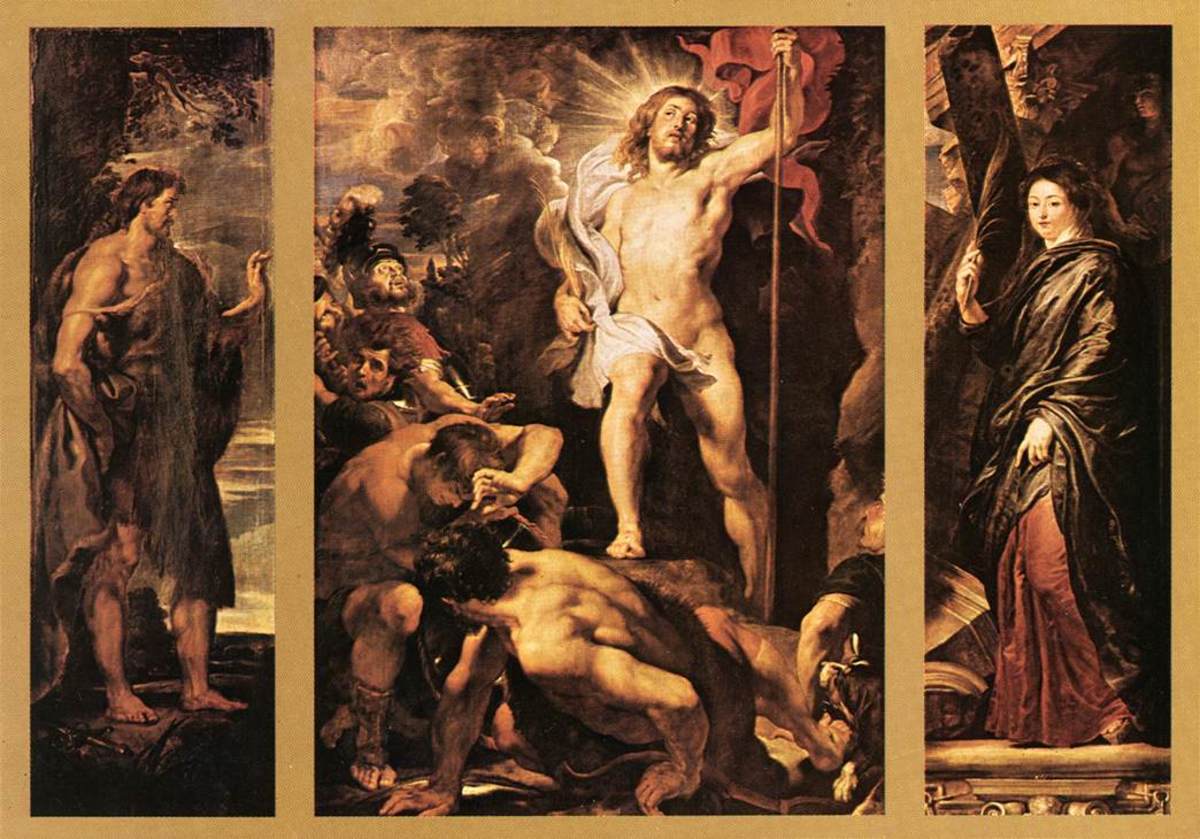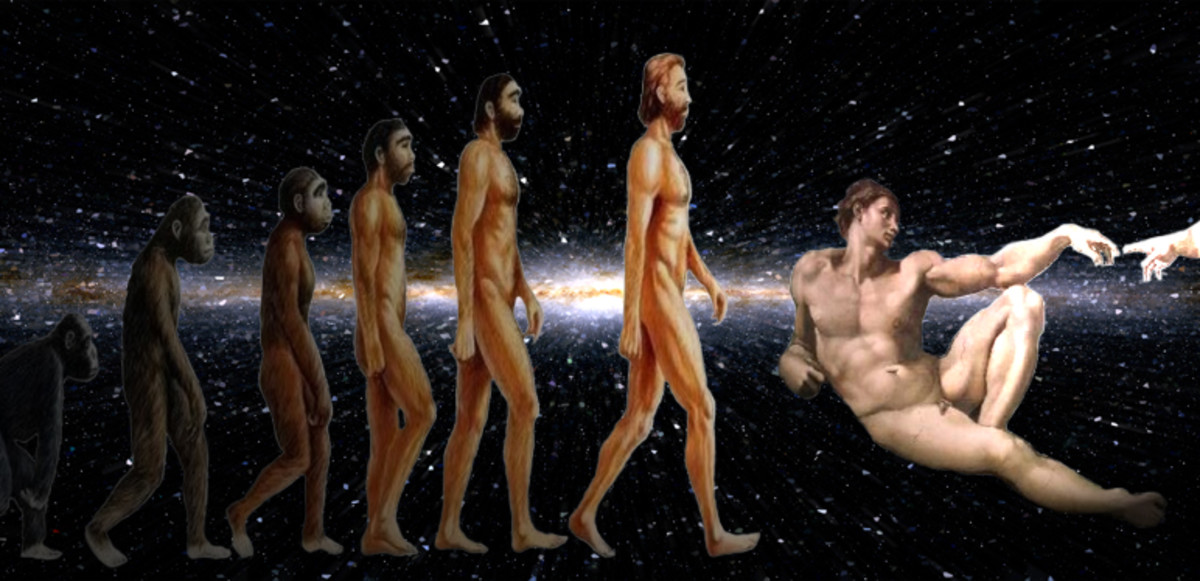Bible: What Does Acts 17 Teach Us About Paul and Greek Philosophy?
The Apostle Paul

True Nobility
view quiz statisticsActs 17: Opposition in Thessalonica, Nobility in Berea, and Skepticism in Athens
Paul and Silas in Thessalonica
In contrast to Philippi, which did not have enough mature men (at least ten) to start a synagogue at that time,Thessalonica, the apostle’s next stop, had at least one place of worship.
Paul spends three Sabbaths preaching from the Older Testament the necessity of the death and resurrection of the Christ and then proclaiming Jesus as that very Personage (vv. 1-3).
The Lord draws many devout Greeks and leading women to Himself, and they support Paul and Silas’s ministry (v. 4).
Yet again, opposition from unbelieving Jews arises. Luke assigns jealousy as their motive for assembling a mob of “evil men from the marketplace,” and inciting it to attack the house of Jason—the place where they heard Paul and Silas were lodging (v. 5).
Finding the apostles absent, the Jews drag Jason and other Christians before the city’s rulers, and claim that these believers are not only harboring those “who have turned the world upside down,” but that they are also adhering to treasonous beliefs and practices (vv. 6-7).
[This charge was, of course, the same one the Jews leveled against Jesus: that is, He was setting Himself up against Caesar as a rival King.]
Though concerned by this report, the rulers merely make Jason pay a pledge—money that he would forfeit if more civil disturbance resulted from apostolic activities (Ryrie, New Testament Study Bible, 240)—and then release him (vv. 8-9).
Paul and Silas in Berea
Spirited away to Berea by night, Paul and Silas enter the synagogue there (v. 10).
(Luke regarded Berean Jews as “more noble-minded than those in Thessalonica,” offering as evidence for this conclusion both their willingness to receive Paul’s preaching and their diligence in personally studying Scripture to substantiate the truth of his doctrine [v. 11]).
As in Thessalonica, so in Berea, God saves a multitude of Jews and Greeks, men and women alike (v. 12).
News of the gospel’s success travels to Thessalonica, so the Jewish opposition there sends a delegation to Berea to stir up more controversy (v. 13).
To avoid further incident, the Christians in Berea send Paul to the sea; Silas and Timothy, however, remain behind (v. 14).
[As the main spokesman, the apostle attracted most of the opposition].
On to Athens Paul sails—a long trip south along the east coast into the Achaian region; later, he sends for his companions, asking that they come to him quickly.
Paul seems to need their fellowship in order to overcome the emotional distress the rampant idolatry surrounding him in Athens causes him (vv. 15-16).
[Idol worship should provoke the spirit of every genuine believer in Christ.]
Areopagus (Mars' Hill)
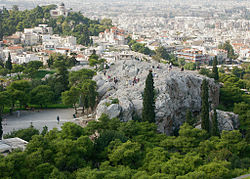
Everyone is a child of God?
Are all people children of God?
Paul at the Areopagus in Athens
In the meantime Paul spends his days as he normally did, evangelizing not only the synagogue Jews and religious Gentiles, but also all kinds of citizens who frequented the agora (v. 17).
Among the inquisitive individuals encountering him in the latter locale include certain Epicurean and Stoic philosophers.
As pantheists, the former group believed that achieving happiness constitutes man’s highest goal.
The latter, on the other hand, deemphasized emotion and stressed rationality; to them, doing one’s moral duty stood as the key to a good life.
Their opinions of Paul ranged from “babbler” (“an idler who made a living picking up scraps” (NKJV margin [1189]) to a “proclaimer of foreign gods,” namely, Jesus and the resurrection (vv. 18-20).
While visiting the Areopagus (English translation, Mars’ Hill)—the locale where the Athenian religious and educational council met—the apostle (as the guest speaker de jure) addresses the august ones gathered there (v. 21), observing that they are “very religious” (v. 22).
Seeing an inscription on one of their many altars that read “To the Unknown God,” Paul declares to them that he knows the God whom they worship in ignorance (v. 23).
He describes God as the Creator, the Lord, and the Sustainer of the universe, who neither lives in man-made temples (that is, He is invisible) [v. 24; cf. 7:48-50], nor needs anything that man can sacrifice to Him (He is self-sufficient) [v. 25].
This Being has made all of the nations on earth from one individual (“blood,”NKJV)—Adam—, and has by His sovereign will determined that people should seek the Lord as they dwell in particular places during the time He allows them to live there (vv. 26-27a).
[What do geographical boundaries and the length of a people’s stay within these confines have to do with their search for God?]
The bare fact that, by God’s mercy and common grace, people “seek” Him does not guarantee that they will find Him, even though He is spiritually nearby everyone.
Paul teaches the Lord’s immanency, His omnipresence in His creation.
God is our Environment (“in Him we live and move and have our being”), and all humanity belongs to Him by virtue of creation (vv. 27b-28).
[Though all people are God’s children by creation, only believers in Christ belong to the family of God by re-creation.]
Created in God’s image, human beings should know enough about His nature not to make idols of Him out of earthly substances (v. 29). Paul says that God “overlooked these times of ignorance” (v. 30a).
[This statement cannot mean that the Lord excused people’s sinful ignorance; it signifies that He did not punish it as it deserved or atone for it as He was going to do through Christ.]
Jesus and the Resurrection
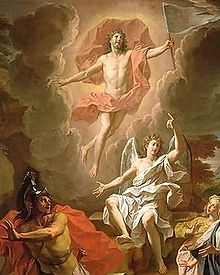
Now that Christ has unmistakably revealed the true God and fully atoned for man’s sin, the Lord commands all people everywhere to repent (“change their minds”) concerning Jesus and turn back to God.
By so doing, they would avoid the horrific time when “the Man whom He has ordained,” even the One whom He has proven worthy by resurrecting Him, will judge the world in righteousness (v. 31).
Paul’s concluding remarks meet with skepticism and ridicule from some in the audience who scoff at the very concept of the resurrection of the body.
As Greeks, they believed that the body is evil, and think it foolish to raise it to life again once it is dead (v. 32a).
Others, on the other hand, desire to hear more from the apostle later (v. 32b).
Before leaving Mars’ Hill, Paul sees God touch several hearts, bringing Dionysius the Areopagite, Damaris, and others to a saving knowledge of Himself (vv. 33-34).
© 2013 glynch1

